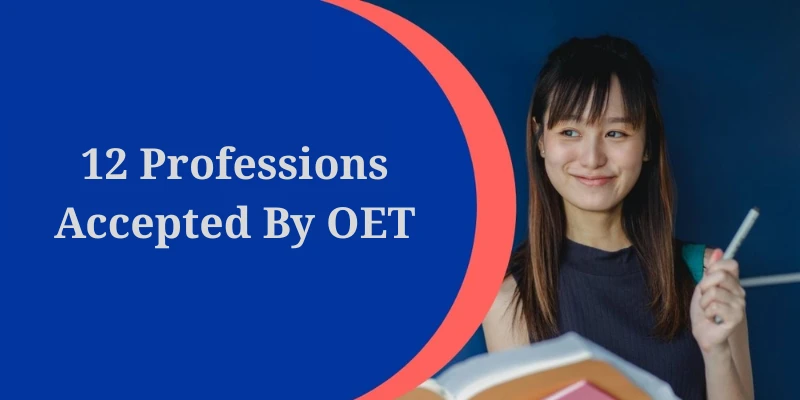
The Occupational English Test (OET) has become a leading choice for healthcare professionals seeking international career opportunities. Unlike general English exams, OET is tailored for clinical communication. If you’re planning to migrate to an English-speaking country, it’s essential to know which professions are eligible. Gain valuable skills in OET by enrolling at a reputed OET Coaching Centre in Chennai, offering advanced-level training and career-focused placement support. In this blog, what are the 12 profeesions accepted by OET.
What Is OET?
OET is an English test for healthcare professionals who wish to register and work in English-speaking environments. What makes OET unique is its focus on real clinical settings, using role-specific scenarios to test your language proficiency. Recognised by multiple OET-accepted countries like the UK, Australia, New Zealand, and Ireland, the exam ensures candidates can communicate effectively with both patients and colleagues in professional environments.
The 12 Professions Accepted by OET
Let’s break down the twelve professions that OET recognises:
1. Medicine
Medical professionals, such as general practitioners and specialists, are tested on their capability to handle real-life clinical scenarios. To enhance your communication skills, consider joining Soft Skills Training in Chennai along with your OET preparation.
The exam assesses how well you can communicate with patients, other doctors, and healthcare staff. You’ll be expected to demonstrate medical English proficiency in note-taking, patient reports, and consultations.
2. Nursing
Nursing is one of the most common professions taking the OET. The OET for nurses evaluates your skills in patient care communication, responding to emergencies, and providing clear instructions. The tasks mimic day-to-day responsibilities nurses face in hospitals and clinics.
3. Dentistry
Dentists need to discuss procedures, make referrals, and educate patients on dental care. Understanding tips to improve your OET writing ensures you can perform these tasks using accurate, professional English. The test also evaluates essential writing skills, such as composing case notes and patient summaries.
4. Pharmacy
Pharmacists must be precise when providing instructions about medication. The OET tests your ability to communicate drug usage, interactions, and precautions. This is especially vital to avoid errors in treatment plans.
Join Clinical SAS Training in Chennai to easily step into the OET and healthcare industry with valuable, job-ready skills.
5. Veterinary Science
Veterinarians may treat animals, but they must communicate with human pet owners, assistants, and staff. The test assesses your ability to clearly explain treatment options, surgical procedures, and aftercare instructions.
6. Physiotherapy
Physiotherapists assist patients in recovering from injuries or surgeries. The OET evaluates their communication with patients about exercises, therapy plans, and progress updates. Understanding patient concerns and offering guidance in plain English is a critical skill.
7. Podiatry
Specialists in foot and ankle care must explain diagnoses and surgical procedures to patients. The OET ensures podiatrists are capable of precise and professional communication throughout the patient care process.
8. Optometry
Optometrists conduct eye tests, explain results, and prescribe corrective measures. The OET assesses your communication accuracy in patient instructions, record-keeping, and referrals.
Discover the advantages of taking the OET to improve your career skills and boost your chances of landing a healthcare job.
9. Occupational Therapy
Therapists often help patients regain independence after an injury or illness. The OET evaluates your ability to provide emotional support and clear instructions. It also tests writing skills in progress reports and care plans.
10. Radiography
Radiographers must instruct patients before scans, explain procedures, and adhere to safety protocols. OET focuses on these interactions, ensuring radiographers use precise English to avoid misunderstandings.
11. Speech Pathology
Speech pathologists work with clients who already have communication challenges. The test evaluates their ability to describe therapeutic techniques, progress, and care plans clearly.
12. Dietetics
Dietitians help patients with health and nutrition goals. The OET assesses their ability to provide accurate, easy-to-understand diet recommendations, meal plans, and patient education in English.
Explore the Best Training Institute in Chennai that offers valuable courses with placement support and expert career guidance.
Why Choose OET Over Other English Tests?
The primary reason to choose OET is its relevance. Tasks such as writing referral letters or handling patient instructions are more familiar than writing abstract essays. Also, the OET speaking role-play mimics actual consultations, making it highly practical. This makes preparation easier and more valuable in your healthcare setting.
Knowing the 12 professions accepted by OET allows you to plan your international career path confidently. Whether you’re in medicine, nursing, or dietetics, OET can be your bridge to working in top-tier healthcare systems across the world. Start your journey today by choosing the right training and preparing effectively for the test.
